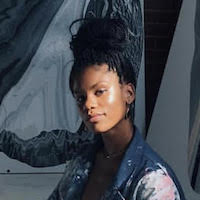![]()
Author’s note: The term “white feminist” does not apply to all white women who are feminists, rather, all women who practice feminism that only serves white people.
~
White feminism: the loudest voices of the mainstream feminist movement belong to and speak for white, able-bodied, middle-class women in first world countries.
As a result, the blissful ignorance of white privilege and the dissemination of racism are both prevalent in the white feminist movement.
Feminism today is notorious for whitewashing, minimizing, forgetting, and ignoring the experiences of BIPOC (Black, Indigenous, People of Colour) as well as for perpetuating racist stereotypes and by profiting off different cultures (in fashion, music, and language).
Additionally, the capitalist mission of mainstream feminists doesn’t really seek to dismantle the system of oppression, but rather perpetuates it, for it still relies on the subjugation of another group of people. More often than not, this means the continued exclusion of people of colour, the LGTBQIA community, the alter-abled, and the poor. I have never understood the point of seeking equality with white men.
Clearly, I do not fit into the mainstream feminist movement —not that I want to.
White feminism is petty.
It involves a focus on body hair and free-bleeding as forms of protest, as well as other erroneous remonstrations. Much of this, as I have experienced, is executed with a lack of education or self-examination. Either that, or white feminists simply don’t care. A flagrant exhibition of this was the defacement of the statue of a black, disabled, enslaved woman named Harriet Tubman by feminist protesters during the Women’s March in Harlem.
I have also noticed a lack of ownership —that white women supported slavery; that the majority of white women voted for the latest president; that white women perpetuate institutionalised racism and white supremacy. In effect, this form of feminism is disrespectful, dishonest, self-serving, and pointless.
Working in the creative industries has made me acutely aware of feminism’s shortcomings.
The art world (read: hipster world) is a white-dominated sphere (white men and women). On one hand, I am included because I am different, as a token of proof of inclusivity. A checked box: “diversity.” In the writing world, some white people feel as though I am attacking them.
One thing I have also learned is that white people expect me to educate them, when their questions are easily answered by a google search. If I am patient enough to converse (which can be tiring, especially if the person doesn’t want to hear you), and the conversation becomes impassioned, I am suddenly the Angry Black Woman, or the Strong Black Woman (as a pejorative).
The term womanist is one I came across while reading the work of black activist Angela Davis, coined by poet and activist Alice Walker.
Womanism is specific in its inclusion of all women and men, however it emphasizes the ignorance of the needs of women of colour in the mainstream feminist movement. The term womanist was born out of frustration for that ignorance. To me, womanism runs deeper than feminism, acknowledging black women’s culture, emotional endurance, and flexibility.
Womanism seeks to address real-world issues, such as police brutality, the prison-industrial complex, the plight of women in third-world countries, rampant sexual abuse of men, women, and children, as well as disparities in education, healthcare, and employment in the first world. Men are included in the narrative. Womanism gives a voice to the voiceless in a world where black voices, such as my own, can be silenced and discredited by those who claim to be fighting for equality. Womanism is poetic.
White feminism doesn’t seek to capture and elevate our voices. It doesn’t work to create equality for all. I prefer the term womanist. Womanism represents a better world in which the distribution of power is fair, and everyone is accounted for.
~








Read 6 comments and reply